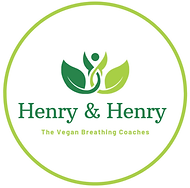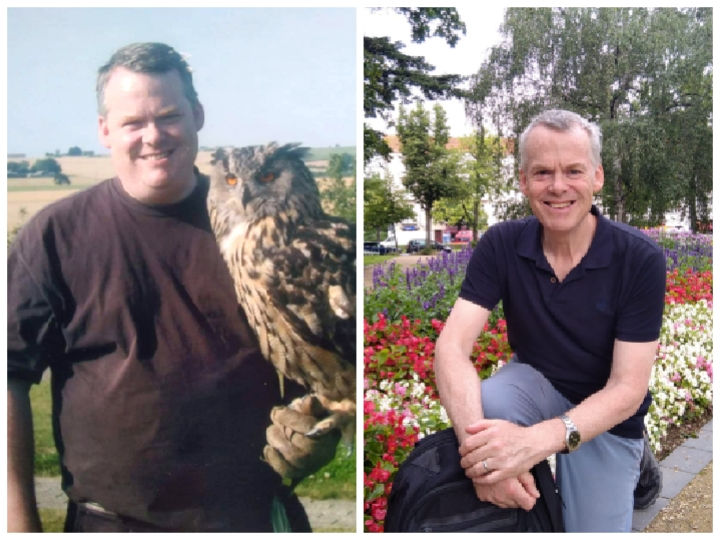Vegans and Bone Health
- Henry & Henry

- Nov 27, 2020
- 4 min read
If you’re among the people who pay attention to new health-related research as it emerges, you may well have noticed a very recent news story about a study that points to vegans being more susceptible to bone fractures than omnivores. Whilst certain media outlets may have leapt on the results as a good opportunity to highlight the perceived inadequacies of veganism, the study itself cannot be construed as having a similarly negative bias. This is from the EPIC Oxford health study, a well-respected and hugely informative investigation into diet and health involving a range of different diets over the course of almost three decades, with many results demonstrating a range of positive health outcomes for those following vegan diets. So what do we need to learn from this most recent study? What do we need to question? What more do we need to know? These are some of the considerations that we’ve been weighing up over the last few days.
This is undeniably a fairly robust study and the findings are of value as they serve to alert those on a 100% plant-based diet of the importance of getting it right and not going short of essential nutrients.
It’s relevant to emphasise that a vegan diet is not a specific diet, it is a form of eating that excludes meat, fish, eggs and dairy. What happens next is down to individual choice and determined by many different factors. It can be done well, it can be done badly or it can be done in a mediocre way, something which also applies to non-vegan diets. This study fails to provide more specific information about what and how much is eaten by the vegan participants on a daily basis and how this changed over time. It’s worth mentioning that this prospective study started in 1993 and involved mostly white females living in the UK. In 1993, veganism was very different to what is now more broadly termed plant-based eating; it was largely a mode of living based on a desire not to harm animals and so the focus was first and foremost on eliminating meat and dairy with the nutritional value of the foods replacing these perhaps being a secondary consideration.Today, more is known about specific nutrients and their role in our body. So, in the absence of detailed information about the make-up of the diets in this study, we are left to draw our own conclusions. It’s also fair to say that it’s not uncommon for those living in the UK, a country that typically has a lot of cloud cover even in the summer months, to have sub-optimal levels of Vitamin D, which can also play an important role in how we absorb calcium. Again, when the study started, information about this issue was almost certainly not in the public realm to the degree it is now and again, we might speculate this could have been a contributory factor in terms of overall bone health. We now know that the current advice across the board is to supplement this vitamin to prevent a deficiency.
Indeed, a common criticism of vegan diets is that vegans risk developing a deficiency in certain nutrients. The EPIC-Oxford Study mentions a lower intake of calcium and protein in the vegans than in the other diet groups and inevitably this may lead the reader to conclude that eating a diet that excludes meat and dairy is not recommended since it will result in a protein and calcium deficiency. We know this is definitely not the case and that a well-balanced vegan diet based on wholefoods - ie. fruit, vegetables, wholegrains, legumes, nuts and seeds - with appropriate supplementation (ie. Vitamin B12, Vitamin D), will provide adequate quantities of both calcium and protein. In terms of the Study, there is no indication of the amount or type of green vegetables that were being consumed. Leafy green vegetables like broccoli and kale are a good source of calcium, whereas spinach is not, owing to the presence of oxalates which blocks absorption. Might the vegans in this study have unwittingly consumed less calcium than they imagined by choosing to eat spinach or some other oxalate-rich vegetables like swiss chard rather than broccoli or kale? Of course, we don’t know if this is the case. The point is, there are potentially so many different factors at play that we should refrain from being too hasty to draw conclusions from studies of this type, but what we can take from this study is the importance of paying attention to what we eat and acquiring the knowledge to get it right.
We, Graham and Annette welcome any prompts that highlight the need to better examine what is needed for human beings, and the planet, to survive and thrive. This is our very raison d’ȇtre and it’s why we’ve immersed ourselves so deeply in education that helps us understand our own health-related experiences and to pass the information on to others so that they too may experience improved health, or maintain good health, and doing so, be a long-term beacon for promoting this way of eating to others for all the reasons driving many of us towards plant-strong or fully plant-based diets.
Henry and Henry will be up and running again from January 2021 and our courses will clearly outline how a plant-based diet can be successful. Some classes will be general in nature with others delving more deeply into the detail so that anyone taking these courses is armed with sufficient knowledge to transition to a plant-based diet that works for them. As we have already stated, there is no such thing as a “vegan diet” as this term only describes what is not included in the diet. There are instead many plant-based diets. The common factors for success are diets based mostly on unprocessed whole plant foods. Within this spectrum, the focus may vary according to the individual and as long as nutrient intakes are appropriate, we know that this way of eating can be the best way of eating on the planet!

For anyone wishing to know more, we’re including here the reactions to these findings from two doctors whose work we respect:
Dr Shireen Kassam: (this link also contains a link to the study itself) https://www.facebook.com/wholefoodplantbasednutrition/posts/2169213729877791
And Dr Neal Barnard: https://www.facebook.com/groups/1259559544065775/permalink/3648228541865518/

)_20230830_134131_0000.png)



Comments